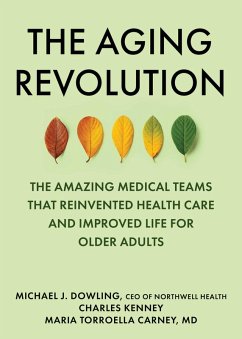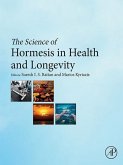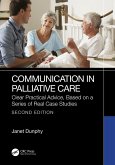A history of aging in the United States and an innovative blueprint for revolutionizing care for older adults from Northwell Health, New York's largest health care system. The New York Times described Dr. Robert Butler as "the man who saw old age anew." In his 1975 book Why Survive: Being Old in America, Butler argued that for far too many people old age was "a period of quiet despair . . . and muted rage" and he set out to mitigate it. Nearly five decades since he penned his book, a devoted band of brilliant physicians and others in the healthcare field have realized at least a portion of Butler's dream: to recognize and alleviate suffering among the aging. The Aging Revolution is the story of Butler and his disciples: women and men who saw older distressed adults in hospitals and homes, and worse: being ignored by most of the medical establishment. These revolutionaries could not ignore the suffering, and they set out-individually and collectively-to create entirely new ways of caring for aging adults to ease their suffering and improve their quality and length of life. This revelatory book tells a story never-before told in its entirety, recounting the one of the most significant periods of improvement in American medical history. Readers will learn about pioneering individuals, concepts, and ideas that have improved the lives of millions, including: the women who placed the spotlight on delirium and falls-major issues for older adults; the campaign to build and spread Geriatric and Palliative Care; the small bands of doctors who worked the halls of Congress to create a new program that provides primary care along with home visits from healthcare professionals; and the New York-based foundation that has devoted its mission and millions exclusively to improving care and quality of life for aging adults. Today, as a result, chronic conditions that almost always accompany old age are far more manageable. Older people enjoy more options for work and professional development, for education, for leisure and travel, for sports and maintaining physical strength and mobility. For increasing numbers of Americans, life is healthier and richer in the experiences that matter most. Yet, aging in America can still be a challenge and, too often, particularly for the poor, a painful struggle. The range of mental and physical well-being has almost infinite variations: ninety-year-olds running marathons; sixty-five-year-olds incapacitated by stroke. While this book celebrates the incredible progress and strides made in this field, it also highlights areas that need improvement. The authors lay out specific steps that, if implemented, could ignite the aging revolution and diminish the total volume of older adults suffering in America.
Dieser Download kann aus rechtlichen Gründen nur mit Rechnungsadresse in A, B, BG, CY, CZ, D, DK, EW, E, FIN, F, GR, HR, H, I, LT, L, LR, M, NL, PL, P, R, S, SLO, SK ausgeliefert werden.









